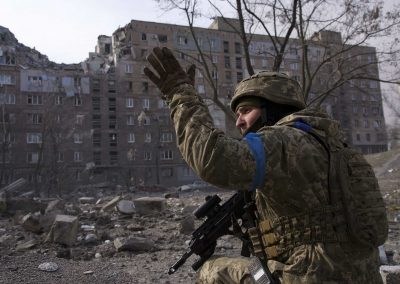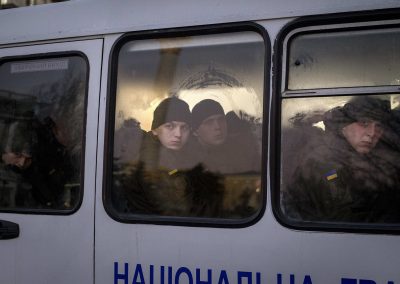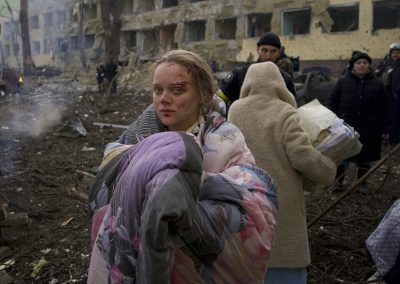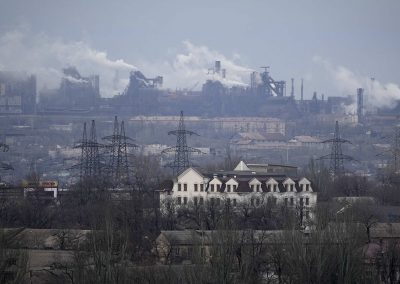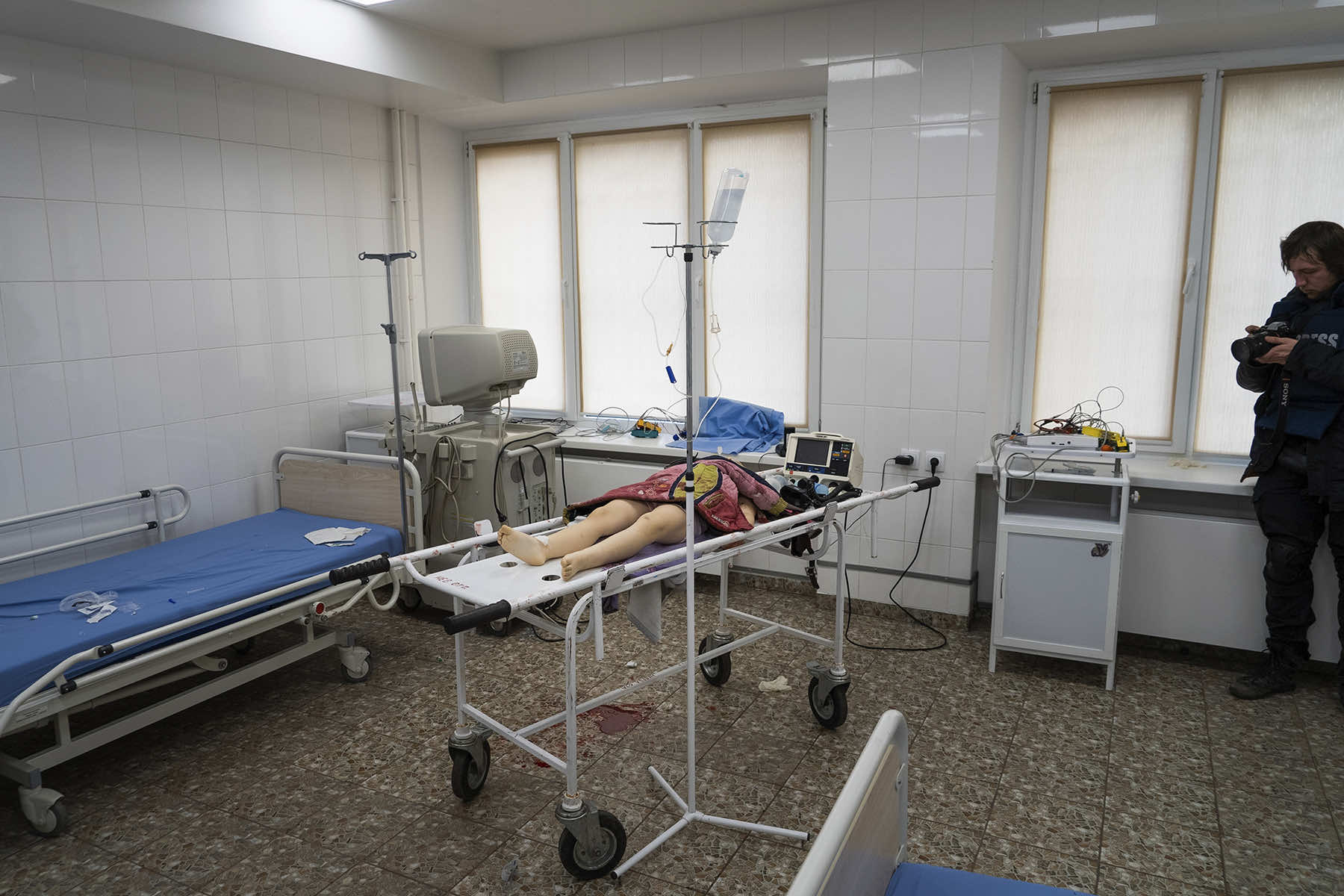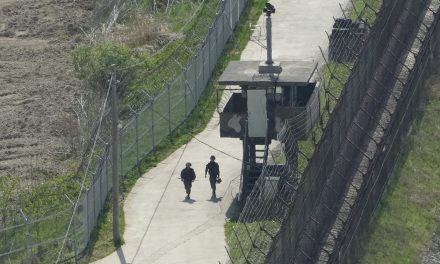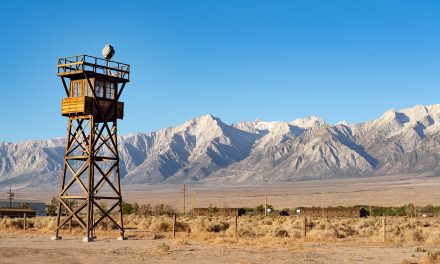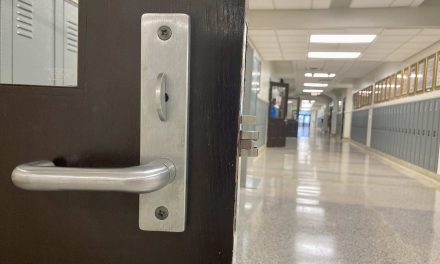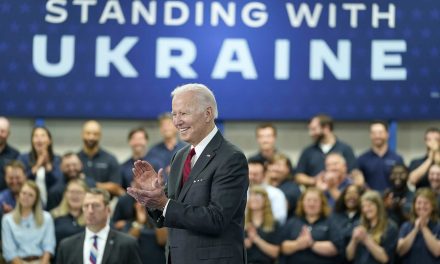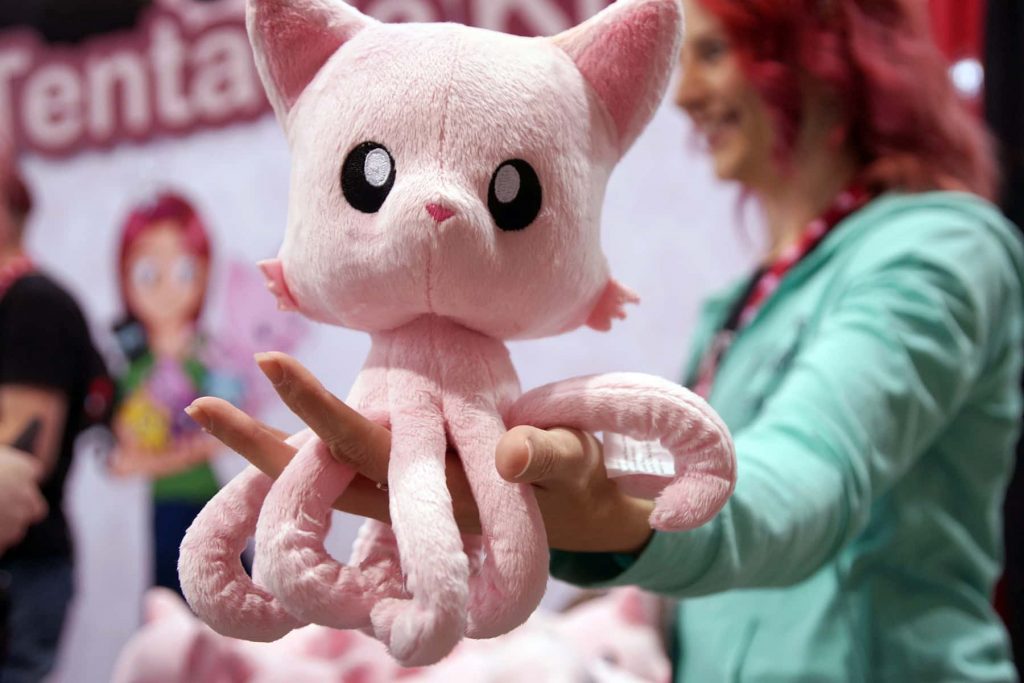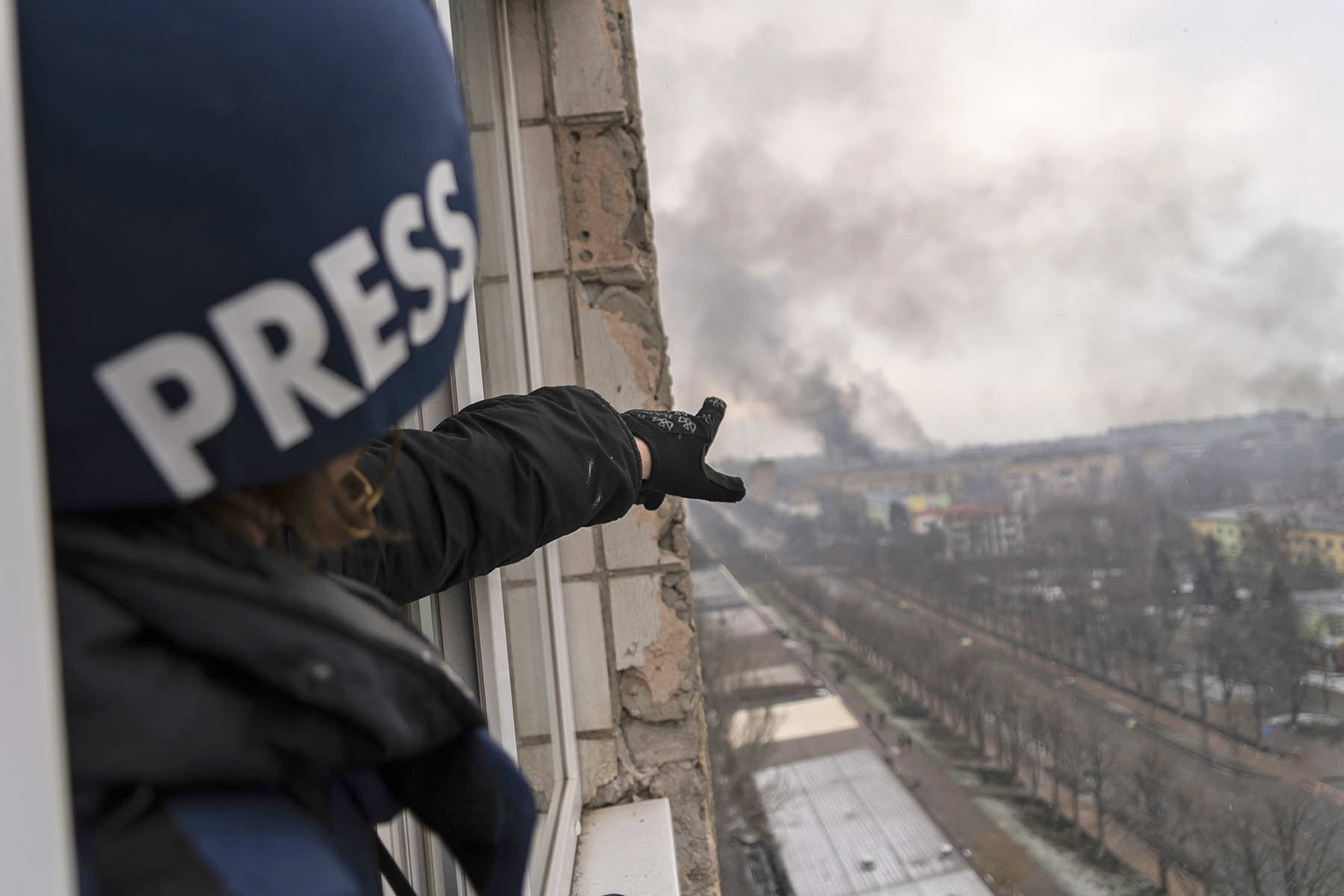
After a year of Russian troop buildup, diplomatic wrangling, and months of consternation of will he or won’t he, on February 24, Russian President Vladimir Putin announced a military invasion of Ukraine. Despite the buildup, the move shocked the world, and journalists working for the Associated Press in Ukraine and in Russia found themselves at the center of the biggest story of the year.
MSTYSLAV CHERNOV, videojournalist in Ukraine:
As a teenager growing up in Ukraine in the city of Kharkiv, just 20 miles from the Russian border, I learned how to handle a gun as part of the school curriculum. It seemed pointless. Ukraine, I reasoned, was surrounded by friends. I have since covered wars in Iraq, Afghanistan and the disputed territory of Nagorno Karabakh, trying to show the world the devastation first-hand. But when the Americans and then the Europeans evacuated their embassy staffs from the city of Kyiv this winter, and when I pored over maps of the Russian troop build-up just across from my hometown, my only thought was, “My poor country.”
JAMES JORDAN, AP news director, Europe and Africa
In the leadup to the invasion on February 24, there were conflicting bits of analysis about what was going to happen next. I was in Ukraine at the beginning of February and the Ukrainian officials were convinced that there would be no invasion; a force of 150,000 Russian troops, how would that take a city of 3 million people, was the general feeling. We had protectively surged our numbers in Ukraine, We had a large number of staff across all formats, across Ukraine. We were ready in terms of our staffing footprint, but it still was a shock when it happened, when those tanks rolled across and when there was that major invasion that targeted cities, infrastructure, people across Ukraine. It was chaos for that first few days and nights when we didn’t really know, and no one knew where the main attacks were happening, where the main flow of troops and material were happening. It was very hard to build up that complete picture. I remember kind of having snippets of official information from the Russians, from the Ukrainians, UGC, establishing what was accurate, what wasn’t accurate, what we were seeing. But it was clear very quickly that this was a major invasion and not just an incursion. This was a kind of an invasion on a number of fronts.
On the fall of Mariupol: MSTYSLAV CHERNOV
CHERNOV, who along with Vasylisa Stepanenko and photographer Evgeniy Maloletka, was one of the last journalists in Mariupol as Russians bombed the city:
I knew Russian forces would see the eastern port city of Mariupol as a strategic prize because of its location on the Sea of Azov. So on the evening of February 23, I headed there with my longtime colleague Evgeniy Maloletka, a Ukrainian photographer for The Associated Press, in his white Volkswagen van. We pulled into Mariupol at 3:30 a.m. The war started an hour later. About a quarter of Mariupol’s 430,000 residents left in those first days, while they still could. But few people believed a war was coming, and by the time most realized their mistake, it was too late.
One bomb at a time, the Russians cut electricity, water, food supplies and finally, crucially, the cell phone, radio and television towers. The few other journalists in the city got out before the last connections were gone and a full blockade settled in. With no information coming out of a city, no pictures of demolished buildings and dying children, the Russian forces could do whatever they wanted. That’s why we took such risks to be able to send the world what we saw. I have never, ever felt that breaking the silence was so important.
The deaths came fast. On February 27, we watched as a doctor tried to save a little girl hit by shrapnel. She died. A second child died, then a third. Ambulances stopped picking up the wounded because people couldn’t call them without a signal, and they couldn’t navigate the bombed-out streets. The doctors pleaded with us to film families bringing in their own dead and wounded, and let us use their dwindling generator power for our cameras. No one knows what’s going on in our city, they said.
The Port City superstore was being looted, and we headed that way through artillery and machine gunfire. Dozens of people ran and pushed shopping carts loaded with electronics, food, clothes. A shell exploded on the roof of the store, throwing me to the ground outside. I tensed, awaiting a second hit, and cursed myself a hundred times because my camera wasn’t on to record it. And there it was, another shell hitting the apartment building next to me with a terrible whoosh. I shrank behind a corner for cover. For several days, the only link we had to the outside world was through a satellite phone. Everybody was asking, please tell us when the war will be over. I had no answer.
On March 9, twin airstrikes shredded the plastic taped over our van’s windows. I saw the fireball just a heartbeat before pain pierced my inner ear, my skin, my face. We watched smoke rise from a maternity hospital. When we arrived, emergency workers were still pulling bloodied pregnant women from the ruins. Our batteries were almost out of juice, and we had no connection to send the images. Curfew was minutes away. A police officer overheard us talking about how to get news of the hospital bombing out.
“This will change the course of the war,” he said. He took us to a power source and an internet connection. We had recorded so many dead people and dead children, an endless line. I didn’t understand why he thought still more deaths could change anything. I was wrong.
On the fall of Mariupol: JAMES JORDAN
I believe that our reporting specifically for Mariupol defined the early stages of the war and really called out as false the narratives that the Russians were providing. There was the determination by Russia that they would only strike against military targets or infrastructure targets, but we were documenting young children killed in the shelling by shrapnel. It was very clear very early on from what the team in Mariupol were providing that the attack on that city was fierce, widespread, and pretty indiscriminate. We saw that in their reporting from the maternity ward and the devastation that was wrought on that hospital and the effect that it had on heavily pregnant women and their children. I remain immensely proud of the work that the staff did down there, to bring that to the world’s attention. They saw it as their duty to show what was going on there.
On restrictions in Russia on reporting on the war: JAMES JORDAN
The AP has retained a presence in Moscow, and the has carried out several reporting trips from Russian occupied Ukrainian territory. We are clear that when we report from those areas that we are under the control of the Russian authorities in terms of where we can and can’t report from. There are a whole raft of new laws (in Russia) that make it hard to give an analysis and contextualization to our reporting, so that obviously reduces the kind of depth of reporting that we can do over there. But we report straight and accurately on what we’re being told, and that feeds into the wider narrative. We have a long term commitment to remain in Moscow and report from there.
On what’s next: JAMES JORDAN
I see no quick resolution to the situation in Ukraine. I think that as long as Putin remains in control in Russia, which there seems to be no suggesting that he won’t, that the Russian troops will stay in Ukraine, and that we’re in for a long a long drawn out affair. I would say that the kind of two main motivators for the opposing sides is, on the one hand, Ukraine to maintain its sources of help in terms of military hardware, military training and humanitarian help. They need that support from the Western allies, from the EU, from America, from the wider world to continue the fight. I sense from my own trips to Ukraine no wavering in the country’s populace in terms of commitment to the fight. And I see in terms of the Russian tactics playbook is to stay there for as long as possible and to grind down the Ukrainian resolve and the global resolve as well. And to hang on to see what happens in the U.S. election, and to see whether there’s a U.S. administration that might be less supportive of Ukraine and more neutral as regards to Russia. I think they feel the longer they hold on, the wider the cracks may appear within Western unity within EU unity. So the longer it goes on, the better for Russia, and the more support that Ukraine will continue to need.

